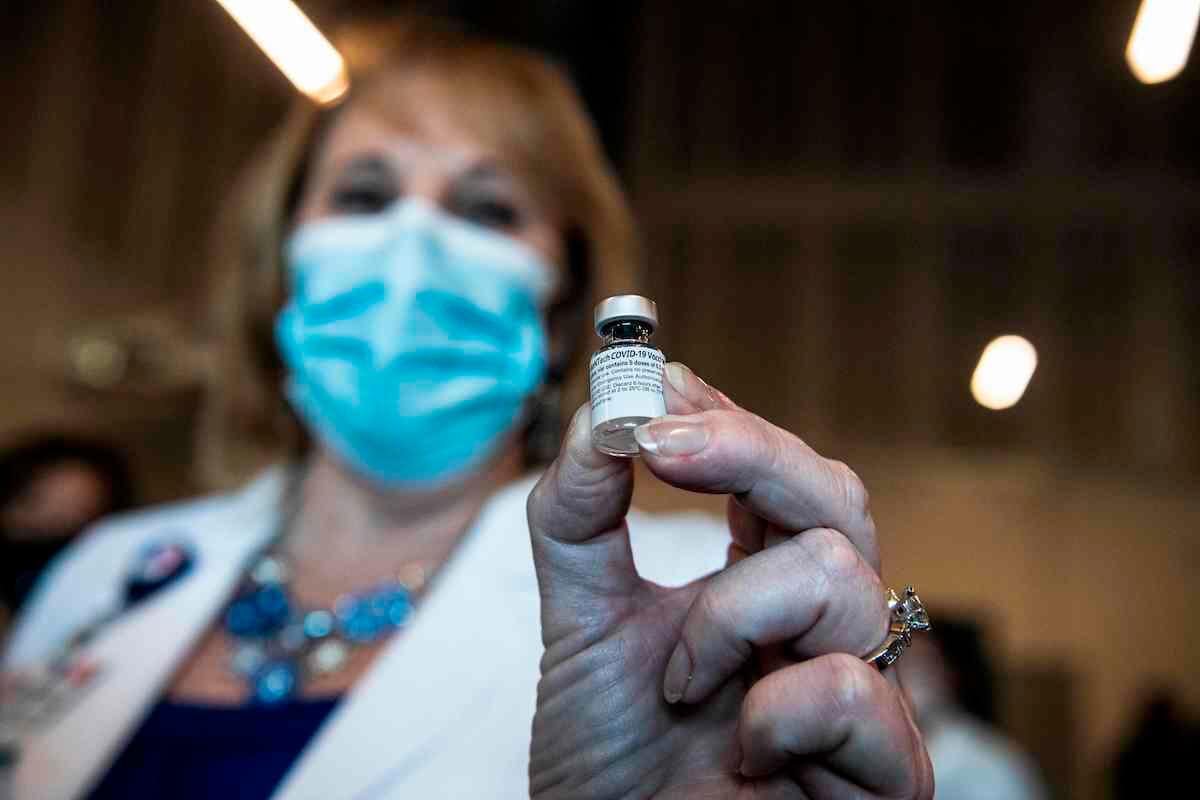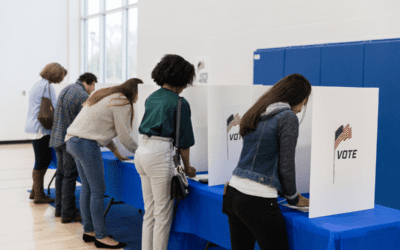
#image_title
Joint Finance chair says Republicans want to ensure widespread availability.
Almost 50,000 doses of the new COVID-19 vaccine are scheduled to be sent to Wisconsin this week, state officials say Monday afternoon. The first shipments of the COVID-19 vaccine left the Pfizer-BioNTech facility in Michigan Sunday morning as Wisconsin’s network of healthcare facilities prepares to distribute the first doses to healthcare workers.
Those first doses will be administered first to around 50,000 health care workers who will receive their second doses from a future shipment.
During a Monday afternoon press briefing, Department of Health Services (DHS) Deputy Secretary Julie Willems Van Dijk said the hubs of the hub-and-spoke vaccine distribution model are not being disclosed for security reasons.
“This is precious vaccine,” she said. “We do not want to create any security risk.”
The hubs and spokes model is only necessary for the Pfizer vaccine, though, because of its cold-storage requirements.
A vaccine developed by Moderna is expected to be reviewed by the Food and Drug Administration (FDA) this week; if approved, Van Dijk said that could affect how soon the vaccine could be delivered to smaller and more rural communities since it is easier to handle and store.
If approved, Wisconsin is set to receive 101,000 initial doses of the Moderna vaccine.
Jennifer Behnke of South Central Wisconsin Healthcare Emergency Readiness Coalition told WKOW’s Capital City Sunday that her team held practice sessions Sunday morning for how the vaccine will be handled, sorted and injected.
“We understand that the stakes are really high and that’s why this vaccine exercise was such a great opportunity for us because we really want to get this right,” Behnke said. “For everything our healthcare workers and first responders have gone through for us during this pandemic it’s really important for us to get this right for them.”
It may be months still before the vaccination rollout reaches the general public, but Van Dijk said DHS is already reaching out to community leaders and trusted messengers in communities of color, which have been disproportionately hit by the virus and in many cases lack access to healthcare facilities, to spread awareness about the vaccine.
One advantage, Van Dijk said is that many healthcare and essential workers are people of color. By the time the rollout reaches the wider community, she hopes those vaccinated workers can influence their community members to get vaccinated as well.
Political Turf Battle Over Vaccine Distribution
Rep. Mark Born (R-Beaver Dam), co-chair of the Legislature’s Joint Finance Committee, re-affirmed Republicans’ desire for the budget-writing panel to oversee vaccine distribution. Interviewed on WISN-TV’s UpFront, Born stated that the GOP was not concerned with the first few phases of distribution, which prioritizes healthcare workers, essential workers and the vulnerable. But they want to oversee distribution among the general public.
“We just want to make sure that there’s access across the state, as widespread as it can be,” Born said. “So folks in our assembly districts don’t have to drive long distances to large cities to access it.”
Born did not share the concerns of others that partisan politics could derail an effective distribution process.
“I don’t think it has to be a very negative harsh partisan thing,” Born said. “We can just work together to make sure the vaccine is available, widespread across the state.”
Assembly Minority Leader Gordon Hintz (D-Oshkosh) said on the same program last week that the proposal was “dangerous.”
“We don’t need this to be politicized or micromanaged by politicians, some of whom don’t even believe in vaccination,” Hintz said. “We need to let [DHS officials] do their job, and this is too serious and too important to getting our state back on track to allow this kind of politicized process.”
While some states are ready to roll out vaccination programs in long-term care facilities, Van Dijk said officials do not have enough information to implement a plan this week. They plan to start vaccinating among those populations in two weeks when they learn more about timing and quantity.
When asked whether someone can visit their grandmother after they’ve been vaccinated, Van Dijk clarified that the vaccine will prepare that individual’s immune system to fight the virus but there’s not sufficient evidence whether it will prevent someone from being a carrier who could transmit and shed the virus to others. For that reason she cautioned that people should still take precautions and monitor the state’s infection rates before taking unnecessary risks such as socializing with vulnerable populations.

Opinion: Many to thank in fair maps victory for Wisconsinites
On February 19, 2024, Governor Tony Evers signed into law new and fair state legislative maps, bringing hope for an end to over a decade of...

Opinion: Empowering educators: A call for negotiation rights in Wisconsin
This week marks “Public Schools Week,” highlighting the dedication of teachers, paras, custodians, secretaries and others who collaborate with...

Op-ed: Trump’s journey from hosting The Apprentice to being the biggest loser
Leading up to the 2016 election, Donald Trump crafted an image of himself as a successful businessman and a winner. But in reality, Trump has a long...

Not just abortion: IVF ruling next phase in the right’s war on reproductive freedom
Nearly two years after the US Supreme Court overturned Roe v. Wade, another court is using that ruling to go after one of the anti-abortion right’s...




